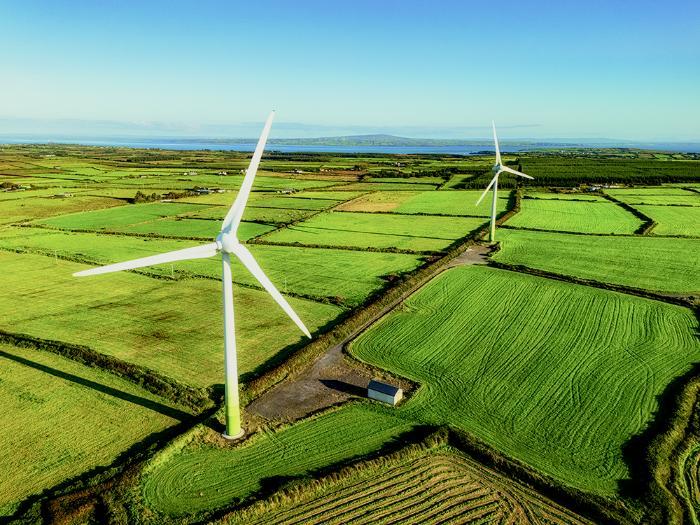21 February 2025
Could the grass be greener?
Agriculture forms a key part of Ireland’s economy, but the sector must improve its use of renewable energy to withstand rising economic and sustainability challenges.

Credit: aluxum/istockphoto.com
The agricultural sector is a cornerstone of the Irish economy, contributing significantly to exports, rural employment and national food security. Renowned for its dairy, beef and crop production, Irish agriculture ensures a reliable supply of high-quality produce while maintaining Ireland’s reputation for agricultural excellence.
However, the sector faces rising economic pressures, including the high cost of fossil fuel-based electricity, which ranks among the highest in Europe. These escalating energy costs increase production expenses, posing challenges to profitability and sustainability.
Renewable energy technologies, such as solar photovoltaics, wind turbines and biogas systems, offer a sustainable solution. By generating clean energy on-site, farmers can significantly reduce operational costs, strengthen energy security and contribute to Ireland’s climate goals. To promote the adoption of renewable energy within the farming sector, the Irish government has implemented a variety of supportive measures.
Taking the initiative
Key initiatives include financial support schemes, streamlined regulations and targeted training programmes for farmers. Among the most attractive support schemes are the Targeted Agricultural Modernisation Scheme, Small-Scale Renewable Electricity Support Scheme and Non-Domestic Microgen Grant.
These programmes provide financial assistance for installing and operating renewable energy systems. Additionally, under export tariff schemes, farmers can generate income by selling surplus energy back to the national grid.
Researchers at Teagasc and Maynooth University are currently evaluating the engagement levels of the farming sector in renewable energy and other bioeconomy projects. This collaborative project is funded by the Sustainable Energy Authority of Ireland and is expected to yield results by the end of 2025.
Preliminary findings from interviews conducted with farmers highlight that they often deem the capital investment required for such projects as large and prohibitive, thereby contributing to low levels of engagement. Muhammad Paend Bakht, a Postdoctoral Researcher at Teagasc working on this project, suggests that this is a common misconception.
“We should emphasise the importance of considering these systems in terms of lifecycle assessment. This would take into account expenses and energy generation over their entire operational lifespan, rather than focusing on the initial capital investment.”
Lifecycle assessment
Through a comprehensive lifecycle assessment, this research project aims to determine the per-unit cost of electricity generated by renewables for Irish farms, Muhammad continues.
“Our findings will provide a more accurate and comprehensive financial comparison of renewable energy systems with traditional electricity sources. This research will help address misconceptions among farmers, which will lead to increased engagement by the farming community in renewable energy projects.”
To maximise the benefits of renewable energy, solutions should be tailored to meet the specific energy needs of different types of farms, Muhammad concludes.
“For example, dairy farms can benefit from solar photovoltaic systems for heating water and refrigeration, while pig and poultry farms might utilize anaerobic digesters to manage waste and generate energy. Crop farms can convert crop residues into biomass energy, and livestock farms may rely on wind turbines or solar systems to meet their high energy demands. Customising renewable energy strategies will ensure that all farms can leverage renewable energy while reducing operational costs.”
Funding
This research is funded by the Sustainable Energy Authority of Ireland (SEAI) under their 2023 Research, Development and Demonstration Funding Programme – grant agreement number 23/RDD/920.
Contributors
Muhammad Paend Bakht, Postdoctoral Researcher, Agricultural Economics and Farm Surveys Department, Teagasc Athenry. muhammadpaend.bakht@teagasc.ie
Anne Kinsella, Senior Research Economist, Rural Economy and Development Programme, Teagasc Athenry.
Michael Hayden, Assistant Professor of Accounting, Maynooth University, Kildare.
